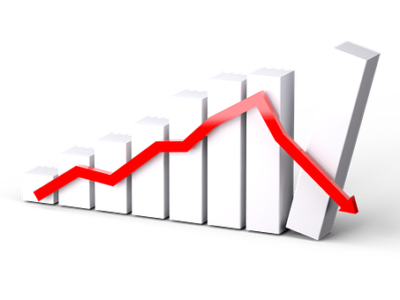10 Ways to Deal with Stress
Stress is part of everyday life. It’s not something that your average finance professional can avoid. And it’s certainly not something you can avoid if you are the ambitious type. But how you deal with stress is key. Even more so given the consequences of Covid-19.
There’s never going to be a one-size fits all angle to this. We’re all built differently, shaped by unique experiences, and see the world through our own prisms. Our living and working environments will also have a bearing on which approaches suit.
So this isn’t a prescriptive list. We all need to find our own toolbox, our personal box of tricks, to combat the inevitable. Don’t let any guru tell you they have the answers for you. It’s all about what works for you. And it can keep evolving as well.
In light of that, here are some suggestions as to how you can combat stress in your daily life.
Get More Sleep
This is possibly one of the most underrated ways in which to deal with stress. Many of us cruise through life on five or six hours of sleep. But in reality, we need more. Eight hours is the recommended dosage. That might mean going to bed earlier, turning off your screens, and having some melatonin. Find what works.
We’ve all heard the nightmare stories of interns that have worked themselves literally to death, giving up sleep to work overnight on M&A transactions. And former British Prime Minister Margaret Thatcher was famously said to have slept for only four hours a night. None of this is recommended.
Meditate a Little
I’m not taking you down the New Age path (not that there’s anything wrong with this area in my view). But meditation is still underappreciated.
There’s plenty of scientific evidence that shows the benefit of regular meditation practice. It can help manage stress, improve concentration and enhance focus. Some banks have got in on the act, offering sessions for staff as part of their health and wellness programs. And for obvious reasons.
Don’t get too caught up by which form of meditation to try. I’ve dabbled with all sorts of meditation (mindfulness, open-eyed, guided, Transcendental, Vipassana). They’ve all brought some benefit. You could also throw the concept of prayer into the mix. It serves a similar purpose. The important thing is to build it into a regular routine. Daily if you can.
Where do you start? Simply start by closing your eyes for five minutes, concentrate on the inhalation and exhalation of your breath. Stay focused on it. If you get distracted, relax and refocus back on the breath. That’s a basic approach that I’ve applied anyway.
Give it a try. Feel the difference with your stress and explore further.
Breathe Better
Just like meditation, there are so many ways to approach this. Box breathing, the Wim Hof Method, the 1-4-2 breath approach, and so on. Experiment to see what works for you to deal with stress.
This is definitely another underappreciated approach to deal with stress.
The one breathing practice that didn’t personally work for me was the Buteyko method. Its approach is to restrict your intake of air rather than expand, which is the more common intention. Not for me. Each to their own.
Do Some Exercise
Stretch those legs. Get your heart pumping. Get moving.
That doesn’t necessarily mean spending hours in the gym. (In the current climate, who spends much time in the gym anyway?). It’s about getting regular forms of exercise that work for you in terms of time and capabilities.
Maybe Zumba is your thing. Maybe it’s swimming. Do your Pilates. Whatever works for you. Get your fill of endorphins, the chemicals produced by the body to relieve stress and pain. These naturally-generated drugs can help you deal with stress in a fun way.
Phone a Friend
Or therapist. Or relative. Maybe a life coach. Or anyone that will listen to you. Bottling up your frustrations will do you no favors.
English poet John Donne wrote the book, ‘No Man is an Island’. That kind of sums up the fact that none of us can exist in isolation. We need each other. So make sure you try to stay connected with others, particularly now that COVID-19 has forced more into isolation. They can help you and you can help them.
Or as The Beatles once sang, “I get by with a little help from my friends.”
Get into Nature
This is something I’ve only recently fully appreciated. It wasn’t really part of my experience growing up in the urban jungle that is London. Yes, there are some lovely parks there and greenery to be had if you make the effort. But I was never really one to make the effort.
These days are different. I’m a bit older and wiser. I live not too far away from nature, and when I get the chance I get out in it. Green hills, verdant shrubbery, coastlines. All to be had.
And it’s amazing how the ills of the world can disappear when you’re surrounded by trees.
Consume Well
You could go down the vegan, raw food, teetotal route. That’s fine. But that’s not for most people.
Still, we are what we eat to some degree. Or rather, what we consume. So the alcohol, sugary carbonated drinks, caffeine intake, and cigarettes count as well.
I’m no angel. I know that there are parts of my lifestyle that can be refined. But I’ve come a long way.
A cigarette hasn’t touched my lips in more than four years. I eat a hell of a lot more fruit and vegetables than I did 10 years ago. I drink water instead of Coca-Cola. I’m not a big red meat lover. And while I might have a tipple here and there, it’s only now that I realize just how much wine, gin and beer I used to knock back.
Nowadays I go pescatarian for a month twice a year (I’m not ready to go full-on vegetarian), while also giving up alcohol, sugary treats, dairy, and caffeine for the period. It’s amazing how much clarity I get when I do these regular resets.
So if you’re looking for a healthy mind and body connection to deal with stress, have a look at what you’re consuming, and see what can be improved.
Be Grateful
This might be a bit fluffy for some people to take on board but bear with me.
We all have challenges in life. Many are serious. Some are really not but we beat ourselves up about them as if they are. Focuses on the negatives that throw at us, isn’t great for your general well being.
I’m not saying that should deny stuff going on in your life and paint on a sunny disposition. Who are you really trying to kid? No, try to find those things in life that you can be grateful for. Your family, a roof over your head, clean water, a sunny sky. The very fact that you were born and have access to the internet is not something to be sniffed at. You choose.
And maybe then meditate on what you discover. Or even write it down in a journal. Embrace the good rather than choosing to be a victim of the “bad”.
There’s plenty of research to show the positives of having an attitude of gratitude.
Reframe it
“You can complain because rose bushes have thorns or rejoice that thorn bushes have roses.” I love that saying. Everything is open to interpretation and perspective. It’s all about how you look at the world. So see if you can find a new way in which to look at a situation, maybe through self-talk or visualization.
Endocrinologist Hans Selye coined the term “eustress” to represent beneficial stress – either psychological, physical, or biochemical. The term consists of the Greek prefix eu- meaning “good”, and stress, literally meaning “good stress”.
Eustress helps us stay motivated, work toward goals, and feel good about life. So if we can reframe a stressful situation from one of “distress” to eustress, we may actually get some benefit from the underlying circumstances.
Get Off Social Media
In a previous life, I would occasionally smoke in bed. Disgusting (and dangerous), I know. It makes me shudder just thinking about it now.
Ok, it’s nowhere near on the same level of a bad habit, but so many people take their smartphones to bed with them these days, simply to spend hours scrawling through their Facebook and Twitter feeds. Not as bad a habit but still unhealthy
There’s research to show that heavy social media users can struggle with sleep. As a result, psychiatrists say screens should be avoided in the hour before bed.
But it’s not even just about bedtime. Research has shown the more depressed a person is, the more social media they might then use, which worsens their mental health further. Reading it in bed is simply doubling down on the bad habit.








Great tips of how to deal with stress! I think breathing techniques are seriously underestimated!